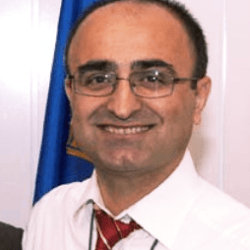This paper is part of the Fall 2019 edition of the Brookings Papers on Economic Activity, the leading conference series and journal in economics for timely, cutting-edge research about real-world policy issues. Research findings are presented in a clear and accessible style to maximize their impact on economic understanding and policymaking. The editors are Brookings Nonresident Senior Fellow and Northwestern University Professor of Economics Janice Eberly and Brookings Nonresident Senior Fellow and Harvard University Professor of Economics James Stock. Read summaries of all six papers from the journal here.
Summary
Craig Garthwaite, John Graves, Tal Gross, Zeynal Karaca, Victoria Marone, and Matthew J. Notowidigdo study the effect of the Affordable Care Act Medicaid expansion on hospital services, with a focus on the geographic variations of its impact, finding that it increased Medicaid visits, decreased uninsured visits, and lead the uninsured to consume more hospital services overall— primarily through outpatient visits to the ED for deferrable conditions. Notably, the authors found significant heterogeneity across Medicaid-expansion states with some experiencing large changes in utilization and others seeing little change.
Citation
Garthwaite, Craig, John Graves, Tal Gross, Zeynal Karaca, Victoria Marone, and Matthew J. Notowidigdo. 2019. “All Medicaid expansions are not created equal: The geography and targeting of the Affordable Care Act.” Brookings Papers on Economic Activity, Fall, 1-92.
Conflict of Interest Disclosure
Craig Garthwaite is a Herman R. Smith Research Professor at the Kellogg School of Management at Northwestern University; John Graves is an Associate Professor at Vanderbilt University School of Medicine; Tal Gross is an Associate Professor of Markets, Public Policy & Law at the Questrom School of Business at Boston University; Zeynal Karaca is a senior economist and program director for market analytics and research at the Agency for Healthcare Research and Quality; Victoria Marone is a doctoral candidate at Northwestern University; Matthew Notowidigdo is an associate professor of economics and an associate professor of strategy at the Weinberg College of Arts and Sciences at Northwestern University. Beyond these affiliations, the authors did not receive financial support from any firm or person for this paper or from any firm or person with a financial or political interest in this paper. None of the authors of this paper are currently officers, directors, or board members of any organization with an interest in this paper. Beyond the Agency for Healthcare Research and Quality, whose data is utilized in this paper, no outside party had the right to review this paper before circulation. The views expressed in this paper are those of the author, and do not necessarily reflect any of the institutions affiliated with the authors.









